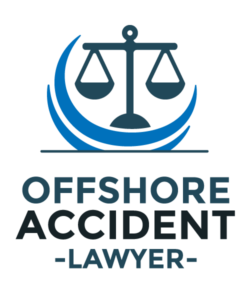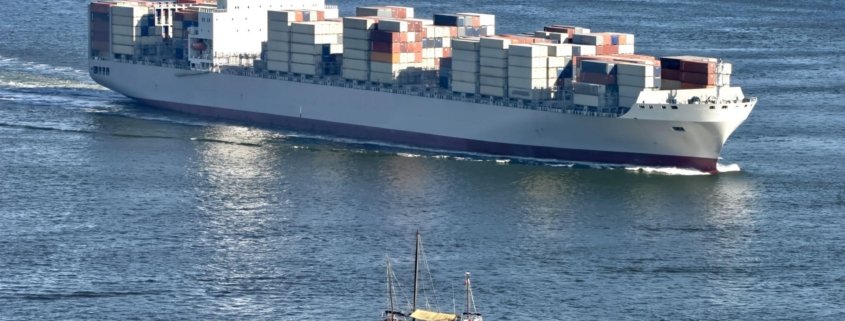Maritime Piracy and Foreign Policy
Piracy is not just a relic of the past or a plotline in a movie. Modern maritime piracy continues to threaten shipping lanes, endanger crews, and disrupt the global economy. For maritime workers, piracy is not an abstract problem—it’s a risk that can lead to injury, kidnapping, and long-lasting trauma.
What Is Maritime Piracy?
Maritime piracy is defined under international maritime law as acts of violence, detention, or theft committed at sea by private individuals for personal gain. Unlike state actions, piracy occurs outside government authority, usually on the high seas where no single nation has automatic jurisdiction.
This means piracy is more than just stolen cargo. It often involves armed boarding, hostage-taking, or hijacking entire ships. These crimes put maritime workers directly in harm’s way.
A Brief History of Maritime Piracy
Piracy has existed as long as trade has moved across the oceans. Ancient accounts describe pirate raids on Greek and Roman ships in the Mediterranean. During the “Golden Age of Piracy” in the 1600s and 1700s, infamous pirates like Blackbeard preyed on ships in the Caribbean and Atlantic.
Over time, stronger navies and international trade rules pushed piracy into decline. But it never disappeared. Instead, it shifted into regions with weaker governments and high-value shipping. The pattern has always been the same: pirates exploit opportunity, instability, and unprotected crews.
Maritime Piracy Today

Modern piracy is less about treasure and more about ransom and stolen goods. Pirates often use small, fast boats equipped with GPS and automatic weapons. They can strike quickly and disappear before authorities arrive.
Some areas of the world remain especially dangerous for seafarers:
- Gulf of Aden and Indian Ocean: Somali pirates continue to pose threats, often kidnapping crews for ransom. In 2024, the Indian Navy freed a merchant ship hijacked by Somali pirates, rescuing the crew and detaining the attackers.
- West Africa: The Gulf of Guinea, near Nigeria and Benin, is a hotspot for oil tanker hijackings. Attacks here are often violent, and crews face a high risk of being taken hostage.
- Southeast Asia: Piracy in Indonesian waters often involves boarding cargo ships and stealing goods. While some incidents are smaller in scale, the threat remains constant.
Maritime Piracy Statistics
The International Maritime Bureau Piracy Reporting Centre tracks piracy incidents worldwide. In 2023, it reported 120 incidents, including 105 boardings, 9 attempted attacks, 4 vessel hijackings, and 2 fired-upon cases. Nearly 100 seafarers were taken hostage, and dozens were threatened or assaulted.
Even though the total number of incidents has declined from earlier peaks, violence against crews has increased in some regions. For maritime workers, the danger remains very real.
Risks of Piracy
For those who work at sea, piracy is not just a policy issue—it is a daily safety concern.
Threats to Maritime Workers
Modern pirates often board vessels armed with rifles, grenades, or even rocket-propelled launchers. Crews rarely have defensive weapons, leaving them vulnerable.
Kidnapping is one of the most severe risks. Somali pirates, in particular, have a long history of holding crew members hostage for ransom. Workers may be detained for months, subjected to abuse, or threatened with deadly force. Even when freed, the trauma of captivity can affect seafarers for the rest of their lives.
A piracy-related maritime injury can lead to lost wages, long recovery periods, and financial stress for families.
Threats to Businesses and the Environment
Piracy also creates major financial and environmental problems. Hijacked ships may be stripped of millions of dollars in cargo, while stolen oil or goods are often funneled into black markets.
There are also environmental consequences. Attacks can damage ships, leading to oil spills, chemical leaks, or debris polluting the sea. These incidents harm marine ecosystems and threaten the livelihoods of coastal communities.
Combating Piracy Through Foreign Policy and International Cooperation

Prosecuting pirates is not easy. Many attacks happen outside a single country’s waters, where no government has automatic jurisdiction. That makes international cooperation critical.
The United Nations Convention on the Law of the Sea (UNCLOS) forms the foundation of maritime piracy laws, giving all nations the authority to seize pirate ships, arrest suspects, and prosecute offenders. Piracy is considered a crime against the international community, which means any nation can act against it.
Still, enforcement is challenging. Countries with limited resources may struggle to prosecute captured pirates. Somalia, for example, has faced decades of instability, leaving piracy unchecked for years. This instability also makes piracy attractive to those with few economic options.
To respond, governments and international organizations have taken several steps:
- Naval patrols: Multinational forces such as Combined Task Force 151 patrol high-risk waters like the Gulf of Aden, deterring attacks through a visible military presence.
- Legal agreements: Britain and Tanzania established a policy allowing the Royal Navy to capture Somali pirates and transfer them to Tanzanian courts for prosecution.
- Recent operations: Naval forces continue to intercept and free hijacked vessels, as seen in the 2024 Indian Navy rescue.
These efforts show how piracy is not just a crime—it is also a foreign policy issue that requires global cooperation.
Staying Safe at Sea
Maritime workers cannot control foreign policy, but they can prepare for risks.
Prevention Strategies
- Follow employer anti-piracy protocols
- Monitor radar and tracking systems for suspicious vessels
- Use Long Range Acoustic Devices (LRADs) to deter attackers
- Practice crew training for emergency responses
Surviving an Attack
If an attack happens, safety is the top priority. Crews are often advised to comply with pirate demands rather than resist, since armed confrontation increases danger. Once authorities arrive, workers can be rescued and the vessel secured.
Your Legal Rights After a Piracy Attack

Piracy is unpredictable, but maritime workers have legal protections if they are injured or taken hostage.
Maritime Injury Laws
Under maritime law, seafarers are entitled to maintenance and cure, which provides medical treatment and basic living expenses during recovery. If negligence contributed to unsafe conditions—such as failure to provide adequate security—workers may also be able to bring claims under the Jones Act.
The Role of Maritime Lawyers
An experienced maritime injury lawyer can determine if your employer failed to protect you from known risks. A skilled maritime injury attorney will help you recover compensation for medical bills, lost wages, long-term disability, and emotional trauma.
These rights ensure that injured maritime workers are not left to carry the financial and personal burden of piracy alone.
FAQs
What is foreign policy?
Foreign policy is a nation’s strategy for dealing with other countries. Piracy is a major foreign policy concern because it affects global trade and security.
What are the implications of maritime piracy?
Piracy threatens seafarers, disrupts trade, creates environmental damage, and strains diplomatic relationships between nations.
What are the laws against maritime piracy?
Piracy is addressed under international maritime law, particularly UNCLOS, which gives all countries the right to pursue and prosecute pirates.
How does maritime piracy affect seafarers directly?
Piracy puts crews at risk of injury, kidnapping, and long-term trauma. Even when workers survive an attack, they may face months of recovery and lost wages.
Can injured maritime workers get compensation after a piracy attack?
Yes. Seafarers are entitled to maintenance and cure, and may also have Jones Act claims if employer negligence contributed to unsafe conditions. A maritime injury lawyer can help secure fair compensation.
Hurt While Working at Sea? Call Us for a Free Consultation

If you’ve been injured in a pirate attack or another maritime accident, you may be facing medical bills, lost income, and overwhelming stress. Employers and insurers often try to avoid paying full compensation, leaving workers and families at risk.
At Schechter, Shaffer & Harris, our maritime lawyers have decades of experience representing injured seafarers. We understand maintenance and cure, Jones Act claims, and the full range of maritime injury laws.
Call us today at 800-836-5830 or contact us online for a free, confidential consultation with an experienced maritime injury attorney. We will fight for your rights and help you recover.
The post Maritime Piracy and Foreign Policy appeared first on Maintenance and Cure.
Source: Read More



